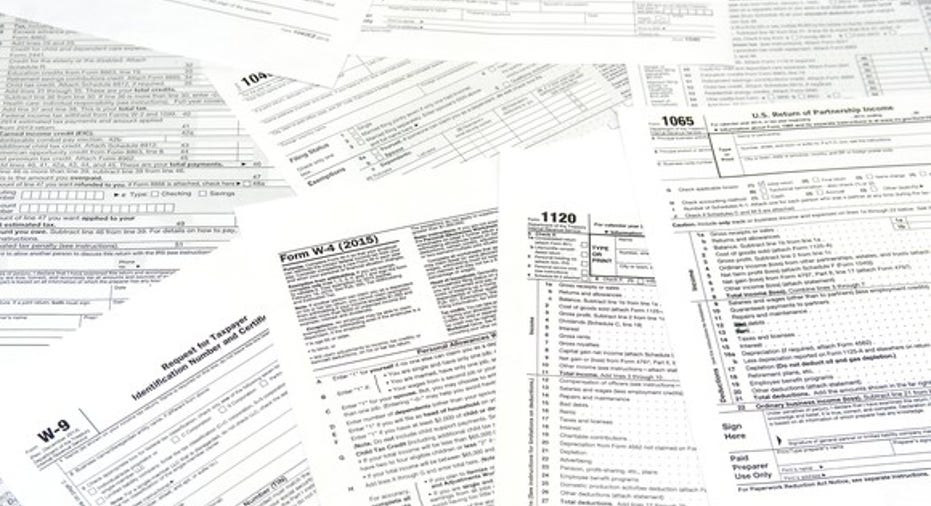Which Tax Documents Do I Need to Keep?

Tax season is over, and many Americans do one of two things once they've finished preparing their tax returns. Either they put their tax documents in a file and put them away somewhere never to be seen again or they immediately head for the shredder or the recycling bin. But if the IRS audits you, you'll need to make sure you can find the records that you used to do your taxes. Here are some tips on what to keep and what you can get rid of.
What you should really keep
The key records to keep are those on which you relied directly to complete your tax return. Form W-2 is the obvious example because it shows not only job income but also federal tax withholding. In fact, for many American households, W-2s are just about the only forms they'll need to do their taxes.
Image source: Getty Images.
For those with more complicated returns, other forms are also important to keep. 1099s will tell you how much you had in interest and dividend income, or they'll show what your capital gains or losses were when you sold investments. On the deduction side of the equation, 1098 forms will often show how much you paid in mortgage interest, real estate taxes, and other deductible items related to your home. To avoid tax penalties related to Obamacare, you'll want documentation that you had creditable health insurance coverage.
Even with less common credits, deductions, and other tax breaks, the general rule is to keep whatever proves you were eligible for the break. That can include formal information return forms, financial statements, or other records that document your spending and that you met any requirements to claim the credit or deduction.
Also, keeping past tax returns is a helpful historical record. You can refer back to those returns in the future, and you can demonstrate that positions you're taking on current returns are consistent with the way you've handled them in the past.
When can I get rid of tax records?
How long you keep key tax records depends on your personal comfort level and on which documents you're looking to throw away. One important determinant is the statute of limitations on IRS audits. In most cases, tax authorities have three years from the due date of the tax return to make inquiries on the information you provide. After that, some taxpayers feel comfortable disposing of tax records on older tax years.
The problem, though, is that there are exceptions to the three-year rule for audits. The IRS can come after people for up to six years if it finds that you've underreported your income by at least 25%. More egregious cases that involve fraud or other willful wrongdoing don't have any statute of limitations. To be on the safe side, therefore, holding onto at least a basic set of documents indefinitely is the best way to cover all your bases.
Also, you'll need some records for a lot longer. For investors, the best example is the transaction records from purchasing investments. Although brokers are supposed to provide documentation of tax basis for subsequent sales, they often make mistakes, and being able to double-check their work is worth the hassle of holding onto brokerage confirmations and similar documents for as long as you still own the investment in question.
Don't make a bad move with your tax records
Finally, one thing to keep in mind is that electronic records have made it a lot easier to make and hold onto copies of returns. In the past, having to make paper copies or scan documents page by page involved excruciatingly dull effort. Now, it can be as simple as downloading a PDF and keeping it in a computer file. Yet even electronic records have the danger of becoming obsolete, so be careful before you rely on an outdated computer program as your sole means of getting access to electronic records.
It takes some effort to hold onto your tax records, but storing vital records is worth the trouble. Even if you only keep the most important of your tax documents, you'll be happy you did if anyone ever questions you about your returns.
The $16,122 Social Security bonus most retirees completely overlook If you're like most Americans, you're a few years (or more) behind on your retirement savings. But a handful of little-known "Social Security secrets" could help ensure a boost in your retirement income. For example: one easy trick could pay you as much as $16,122 more... each year! Once you learn how to maximize your Social Security benefits, we think you could retire confidently with the peace of mind we're all after.Simply click here to discover how to learn more about these strategies.
The Motley Fool has a disclosure policy.



















